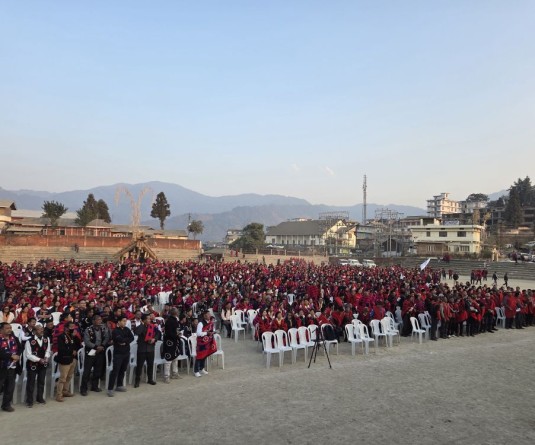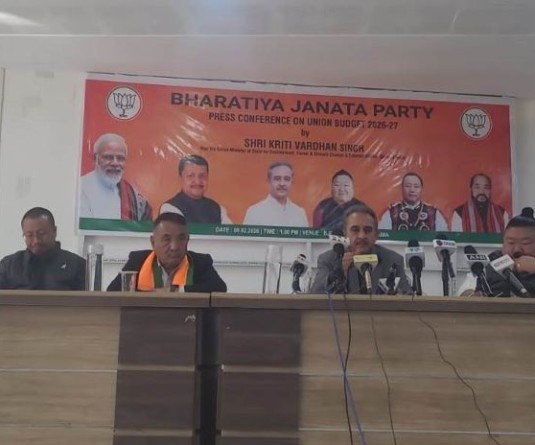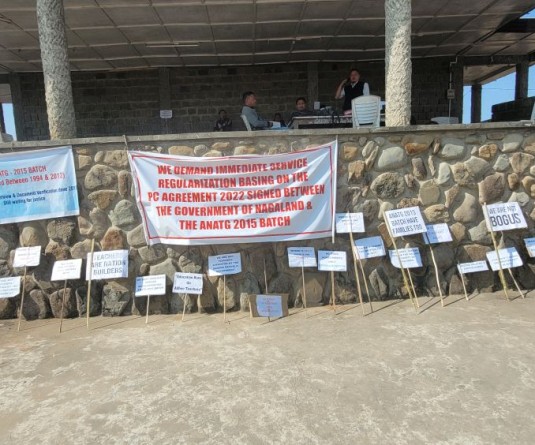
WC-NNPGs urge GoI to honor agreed position on Indo-Myanmar border fencing
DIMAPUR, SEPTEMBER 28 (MExN): The Working Committee of the Naga National Political Groups (WC- NNPGs) has expressed strong opposition to the Government of India’s recent proposal to fence the entire Indo-Myanmar border. Nagaland shares a 215 km international boundary with Myanmar, part of a total 1,643 km border along the northeastern states.
In a press statement, the WC-NNPGs emphasized that the status paper outlining their agreement with the Government of India cannot be altered unilaterally. According to this agreement, the amendment of the Indian Passport Act would reflect Naga identity, and the Free Movement Regime (FMR) for indigenous Nagas on both sides of the border should extend up to 35 miles.
The committee highlighted the case of the Angh (Chief) of Longwa village in Mon district, whose home straddles both India and Myanmar. This situation illustrates the historical injustices faced by the Naga people, whose ancestral lands have been divided without consent. While homes may be on the Indian side, the agricultural fields often lie in Myanmar. The proposed fencing would displace indigenous Nagas from their ancestral lands and threaten their livelihoods, it emphasized.
The WC-NNPGs also asserted that Nagas cannot relinquish their inherited lands. The committee warned that enforcing border fencing would violate the UN Declaration on the Rights of Indigenous Peoples. It also criticized the Government of India for potentially punishing Nagas for issues in other border regions and reaffirmed their demand for an extended FMR as a fundamental right.
Reiterating its commitment to the principles outlined in the Agreed Position and the status paper, describing the FMR as vital for thousands of Nagas, the WC-NNPGs cautioned that past arbitrary political decisions have fueled resentment among the Naga people, impacting India as well.
“An inalienable part of Naga history, culture and tradition dwells in Naga land under Myanmar. Erecting boundary wall in the middle of our ancestral land will have serious ramifications. WC-NNPGs call upon the GoI to announce early political solution and nothing else,” the press statement read.
The committee further emphasized that the Agreed Position is “neither a vague signed paper nor a shallow gentleman’s agreement” but a fully conscious, irrevocable and unprecedented historical document based on which the GoI and WC-NNPGs, with complete endorsement of Naga Tribes, Village headmen and civil societies, agreed to sit on the negotiating table.
Reminding that the negotiations officially began on November 17, 2017, and concluded on October 31, 2019, the WC-NNPGs urged the Indian political leadership to address the matter promptly and find a political solution, asserting that the Agreed Position “encapsulates the sowing and germination of the first seed of Naga nationhood and the possible political future of the Nagas.”





.jpg)
